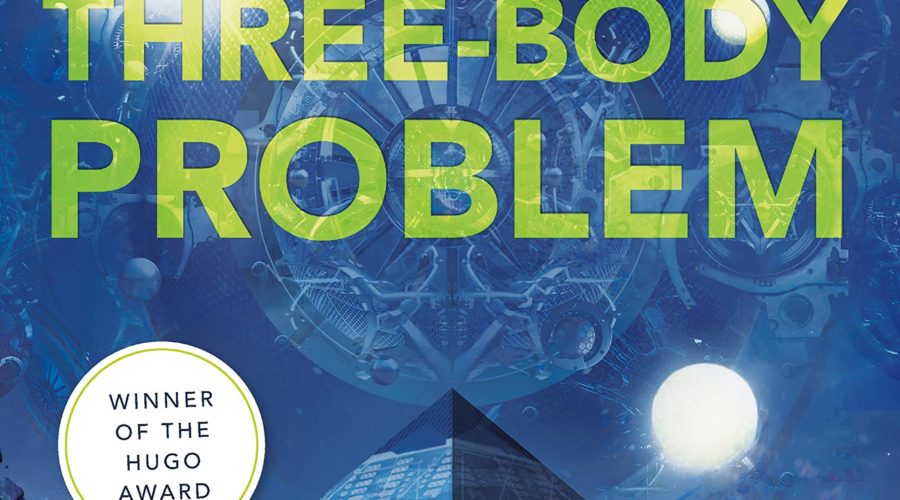Link :Amazon, Goodreads. Price: £7.37
Engineer Wang Miao is asked by the Beijing police to infiltrate a secretive cabal of scientists after a spate of inexplicable suicides. What he discovers is a bizarre on-line game exclusively for selected scientists and regularly restarted by the inexplicable behaviour a planet’s sun, and a conspiracy rooted in the cultural revolution that has grown to spread light-years both in distance and catastrophic implication.
Proper hard sci-fi, rooted in physics, holds a special place in the pantheon of the genre, and The Three Body Problem contains a lot of physics. I’m loosely familiar with the three-body problem (which is, unsurprisingly, important here), I could follow most of the maths, played enough Traveller as a kid to be fine with the stuff about space travel, but the astrophysics lost me. Does that sound like it should put you off? Don’t be. Liu does a fantastic job of both explaining why the science is relevant, and its impact on the story. If you like hard sci-fi, you’ll be right at home here.
A side note – analysis of the three-body problem has come a long way since 2014 when this book was published, as have supercomputers – so it’s just possible that this stories central problem isn’t a problem anymore. I’m not sure about that (economist not physicist), but if you’re into this stuff and find yourself confused, that may be why.
This story starts during China’s cultural revolution, and simply by virtue of that being such an extraordinary and horrific time, those parts of the story for much of the book feel far more compelling than Wang Miao’s investigation. Thankfully, these elements are steadily intergrated and, as the plot twists and turns, this becomes an utterly compelling exploration of… well… all sorts of ideas that would be spoilers. But if you’re interested in China, physics, complex mysteries, culture shock, or cool sci-fi, pick this up.
This is the first book in a trilogy – all though it does wrap together it’s parts well enough to stand alone, it’s clearly leaving its explosive final act for the sequels. Which I am just about to buy. As a final note, the translation is superb – bravo Ken Liu.



